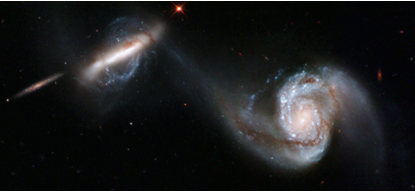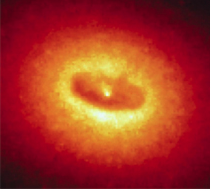Research Areas
Prof. Jong-Hak Woo
Professor Woo’s main research interests are actively mass-accreting black holes and galaxy evolution. When gas accretes on supermassive black holes at the centers of massive galaxies, various physical phenomena are observed over a wide spectral range, including gamma-ray, X-ray, UV, optical, infrared, and radio. Through the active galactic nucleus (AGN) phase, supermassive black holes are believed to play a significant role in galaxy evolution. Professor Woo is currently investigating the various aspects of AGN phenomena to understand the physics of AGN and the connection between black hole growth and galaxy evolution.
On-going research topics include black hole mass determination, reverberation-mapping, kinematics of ionized gas around black holes, search for AGN feedback in multi-wavelength, coevolution of black holes and galaxies, spectroscopic study of active galaxies and their evolution, binary AGNs, etc.
To carry out the observational research projects, Professor Woo has been using various facilities, namely, the Hubble Space Telescope, Chandra X-ray Observatory, Keck, Gemini, Subaru, VLT, etc.
[Homepage] https://astro.snu.ac.kr/~woo/



